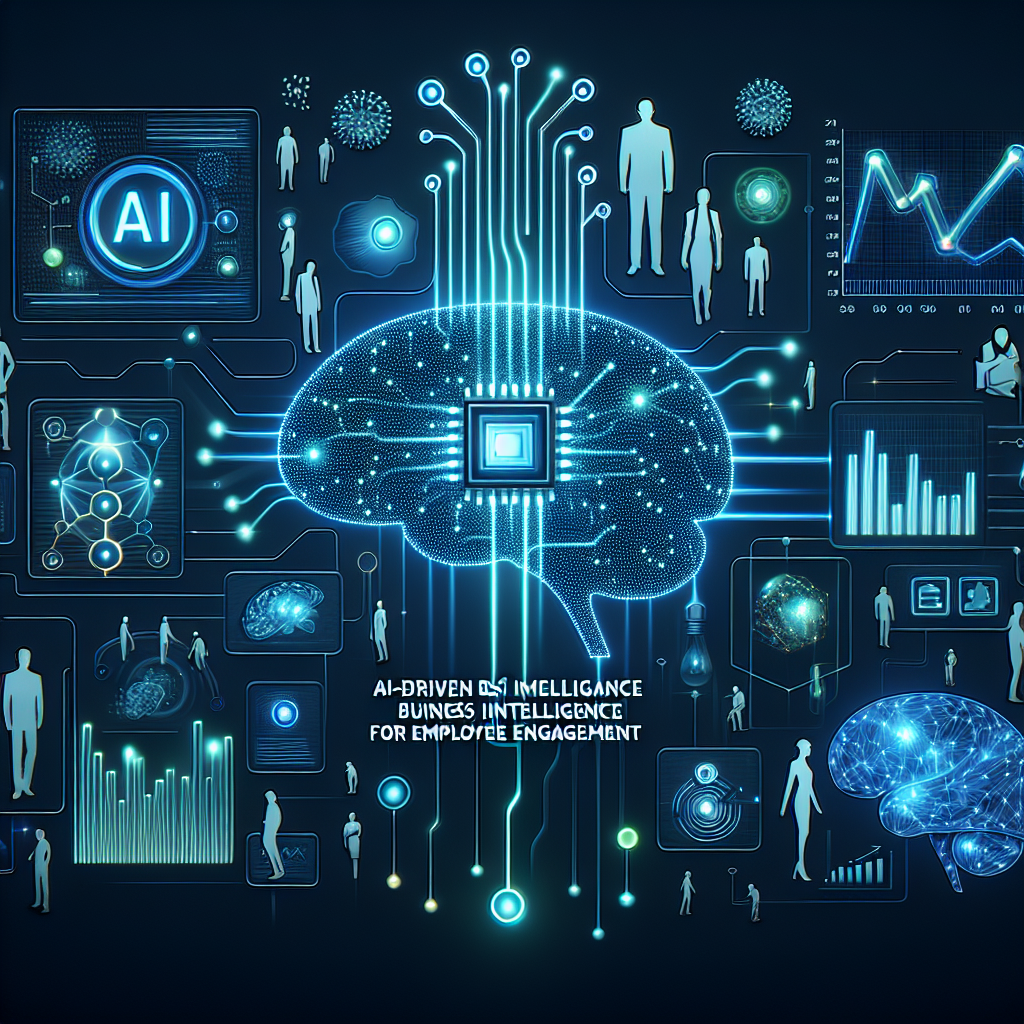In today’s fast-paced business environment, employee engagement is more important than ever. Engaged employees are more productive, innovative, and committed to their work, leading to better business outcomes. However, keeping employees engaged can be a challenge for many organizations. This is where AI-driven business intelligence comes in.
AI-driven business intelligence refers to the use of artificial intelligence technologies to gather, analyze, and interpret data related to employee engagement. By leveraging AI, organizations can gain valuable insights into employee behavior, sentiment, and preferences, allowing them to better understand what drives engagement and how to improve it.
One of the key benefits of AI-driven business intelligence for employee engagement is the ability to identify trends and patterns in employee behavior. By analyzing data from various sources, such as surveys, performance reviews, and social media, AI can uncover hidden insights that can help organizations better understand their employees’ needs and motivations. For example, AI can identify which factors have the greatest impact on employee engagement, such as work-life balance, career development opportunities, or recognition and rewards.
In addition, AI-driven business intelligence can help organizations personalize their employee engagement strategies. By analyzing individual employee data, such as performance metrics, feedback, and communication preferences, AI can recommend personalized actions to improve engagement for each employee. For example, AI can suggest training programs for employees who are looking to advance their careers, or recommend team-building activities for employees who are seeking more social interaction.
Furthermore, AI-driven business intelligence can help organizations measure the effectiveness of their employee engagement initiatives. By tracking key metrics, such as employee satisfaction scores, retention rates, and productivity levels, AI can provide real-time feedback on the impact of engagement programs. This allows organizations to quickly identify what is working and what is not, and make data-driven decisions to improve employee engagement.
Overall, AI-driven business intelligence has the potential to revolutionize employee engagement strategies by providing organizations with deep insights, personalized recommendations, and real-time feedback. By leveraging AI technologies, organizations can create a more engaged and motivated workforce, leading to greater productivity, innovation, and success.
FAQs:
Q: How does AI-driven business intelligence gather data on employee engagement?
A: AI-driven business intelligence gathers data on employee engagement from various sources, such as surveys, performance reviews, social media, and communication platforms. By analyzing this data, AI can uncover trends, patterns, and insights that can help organizations better understand their employees’ needs and motivations.
Q: How can AI-driven business intelligence help personalize employee engagement strategies?
A: AI-driven business intelligence can help personalize employee engagement strategies by analyzing individual employee data, such as performance metrics, feedback, and communication preferences. By recommending personalized actions based on this data, organizations can improve engagement for each employee.
Q: How can AI-driven business intelligence measure the effectiveness of employee engagement initiatives?
A: AI-driven business intelligence can measure the effectiveness of employee engagement initiatives by tracking key metrics, such as employee satisfaction scores, retention rates, and productivity levels. By providing real-time feedback on the impact of engagement programs, organizations can quickly identify what is working and what is not.
Q: What are the benefits of using AI-driven business intelligence for employee engagement?
A: The benefits of using AI-driven business intelligence for employee engagement include identifying trends and patterns in employee behavior, personalizing engagement strategies, and measuring the effectiveness of engagement initiatives. By leveraging AI technologies, organizations can create a more engaged and motivated workforce, leading to greater productivity, innovation, and success.

